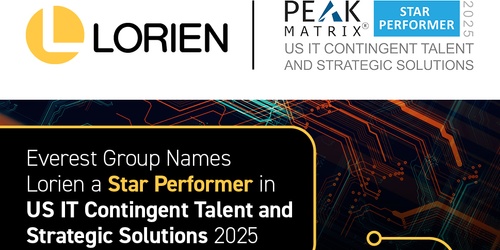Job seekers are in the driver’s seat. Make their candidate journey a positive one. In the United States, millions of critical jobs remain unfilled. Hiring managers are well aware that a talent crisis is underway. Worker shortages are slowing the pace of innovation. While upskilling and reskilling efforts can help over time, the immediate need is not being met. Take the technology sector for example. Workers are in such high demand that they may be entertaining several job offers at once. Recruiters are calling, texting and emailing on a daily basis. The same goes for healthcare, pharma and other industries where there is a deficit of talent. Candidates are in the driver’s seat, and they know it. Companies know it too. But not all are making the necessary adjustments to attract and nurture top talent. In particular, there remains a disconnect between what job seekers expect from the hiring process and what employers are able to deliver.
Are you getting ghosted? There are a lot of reasons that job seekers ghost recruiters and hiring managers. They have the upper hand and are quick to dismiss opportunities that don’t feel right. Software company Greenhouse took a deeper look at these reasons in their Candidate Experience Report. The majority of job seekers have little tolerance for long applications and even longer interviews. They are tired of interviewers who are unprofessional and unprepared. Delayed feedback and follow-up are also pet peeves. Most (75%) of those surveyed have been ghosted by recruiters, as well. The good news is that all of this is fixable with a renewed commitment to candidate care. Analytics and advisory firm Gallup found that a positive candidate experience begins with a recruiter who truly cares and is invested in hiring the best match.
The two other must-haves are consistent and timely messaging throughout the candidate journey, and a respectful professional interview process. Let’s take those one a time. It takes talent to find talent. A great recruiter is priceless. Their engaging personality draws in top talent and leads them through the hiring process as an influential partner. Job seekers can tell when a recruiter is invested in their success as a candidate. Job seekers want to work with recruiters who are: able to make a real human connection, treating each candidate as a uniquely talented individual. culturally aligned to the organization with a strong understanding of the business. excited about the company, serving as a brand champion who is well-versed in what makes it a different and special place to work. transparent about the responsibilities and requirements, as well as the perks, of the opportunity. accessible throughout the process, answering questions and getting answers they might not have. high-touch natural communicators that engage with candidates throughout the hiring process. To support a positive candidate experience, recruiters must be able to immerse themselves fully in the process.
An investment in automated tools and technologies can make staffing easier. A recruiter buried in paperwork can’t deliver on the promise of finding and guiding top talent to the finish line. “With the addition of tools and automation, it’s key to keep the candidate and client experience top of mind. Where possible, we recommend implementing an 80/20 rule for automation and personalization/customization,” said Ryan McMahon, President of Lorien North America. “There are lots of opportunities for recruiters to partner with hiring managers to develop best practices and lean recruiting processes, with a focus on increasing efficiency, while simultaneously removing barriers that cause friction for candidates. In today’s hot market, it’s important to recognize that candidates are becoming more selective around which hiring processes they are willing to invest in and engage with. Companies who are willing to audit their current candidate attraction, recruiting, and hiring processes will position themselves to create better candidate experiences and decrease the chances of candidate drop-off during the hiring process.” The intangibles matter. Yes, there will be conversations around salary, benefits, remote work and flexibility. Ghosting can happen at this point too. So, it’s important that candidates build an affinity with the intangibles of the company from the very first contact. This is done by creating – and communicating – a meaningful employer value proposition (EVP). Going beyond company mission, vision and values to accurately describe the culture and career environment. A strong EVP will define what the company and its people stand for, what matters most, and the pillars on which the organization is based. A company’s EVP serves as the heart of its employer brand. It is an expression of give and get. What the employee is expected to give of themselves (passion, integrity, teamwork, etc.) and what they will get in return (opportunities, rewards, a sense of purpose, and so on). All internal and external employment-related communications should reflect the EVP, laddering back up to the core principles, with consistent and authentic messaging. Harvard Business Review breaks employer branding down into three essential elements – reputation, proposition (EVP) and the employee experience – saying: “If that reputation is strong enough, top talent might be willing to overlook a tedious experience. But if your employer brand is poor, even the best employee experience won’t get you onto the radar of most in-demand job seekers.” After the upheaval of the Great Resignation, people have a much better sense of where they belong and why. Creating an authentic EVP and memorable employer brand is no longer optional if you want to find top talent in an exceedingly competitive market.
Creating an EVP. SHRM, the Society for Human Resource Management, identified “employer branding on the rise” as one the top business predictions for 2022. With remote work increasingly available, candidates have a much wider choice of employers than ever before. Companies with strong employer brands will stand out among the clutter of opportunities. Employer branding is all about telling a story. At the center of the story is the EVP. An EVP is part elevator pitch, part manifesto. It is inspirational, as well as aspirational. It should spark the imagination of job seekers while – and this is key – being 100% believable to current employees. The way to create an EVP that is true to the employee experience is by asking the right questions of the right people. To get started: ASK employees at all levels how they would describe the company, what they like most about working there, and how they would sell a friend on joining the company. ASK leadership what they see for the company moving forward, how they operate on principle, and what serves as their North Star. ASK new hires why they chose the company over other employers, what made a positive impression on them during the hiring process, and what they think of their decision to join. ASK long-tenured employees why they stay at the company, what do they get here that they won’t find anywhere else, and if they have ever referred anyone to join. Do interviews. Conduct surveys. Have focus groups. Hire an external partner to help if the task seems unsurmountable internally.
The goal is to look for common themes that can build out messaging that will tell job seekers what they want – and need – to know about the company culture. Find the differentiators. Why should top talent choose the company, beyond the practicalities of salaries and benefits? Consistent, meaningful communications. If a company can communicate its EVP throughout every milestone of the hiring process, there is a better chance of hiring people who fit. That is the essence of employer branding: integrated and consistent storytelling across all candidate touchpoints. This includes: Career website Job postings Social media Targeted advertising Recruiter communications Candidate relationship management Interview requests Follow-up communications Offer letters Take an inventory of how the company communicates through the hiring process. Look at the materials through the candidate’s eyes. Is the EVP clear? Do the communications feel like they are from one company with a consistent story to tell? If not, what needs to be improved? “The relationship between employer and employee has changed. Today’s talent must be cultivated. An organization’s employer value proposition (EVP) demonstrates that the investment in people is beyond just a paycheck and truly signals the company’s purpose. We will continue to see those organizations that have developed a differentiated EVP thrive because they engage talent in unique and meaningful ways.” - Ann Bookout, Head of Culture & Fulfillment, Impellam Group
A better experience benefits everyone. A CNN piece, titled “The Race for Talent,” highlighted accelerated hiring strategies. Some companies are streamlining their applications to the bare minimum, so candidates can easily apply from their phones. Others are shortening interview cycles and making faster job offers, including same day hiring in some sectors. All in an attempt to secure top talent before another employer does. The interview portion of the hiring process, in particular, needs to be viewed from the candidate perspective. Think about the differing needs of each individual and ask: How well does the interview process accommodate busy schedules? How much time does the job seeker need to invest? Are subsequent rounds of interviews redundant or overlapping? Are the interviewers well-prepared, professional and attentive? Is there a formal rubric for assessing candidates against requirements? How soon are hiring managers providing feedback to recruiters? How quickly can a job offer be made? Where are the obstacles to efficiency and how can they be removed? “Organizations need to listen more closely than ever to their customer (candidate) and work on creative strategies to streamline interview processes and make the candidate journey as effortless as possible. Candidates in the current market usually have multiple choices when it comes to making a final decision, so the need to listen to feedback, to meet the candidates where they are, and become more agile in the process is critical in gaining the best talent.“ - Pete Nelson, Director of Talent Acquisition, Impellam Group
Achieving success. Economists predict that fast hiring (and quitting) will continue throughout 2022 (CNBC). The candidate experience needs to be accelerated. Yet, it must also be thoughtful – catering to job seekers who expect to be respected and cared for throughout the hiring process and beyond. Improving the candidate journey might be a matter of a few quick fixes from a talent acquisition team that can pivot on a dime. However, for most companies, it’s going to take more work. Candidate care starts at point A and continues to the finish line…where the employee experience begins. To learn more about our candidate experience consulting and recruiting services, please click here.








